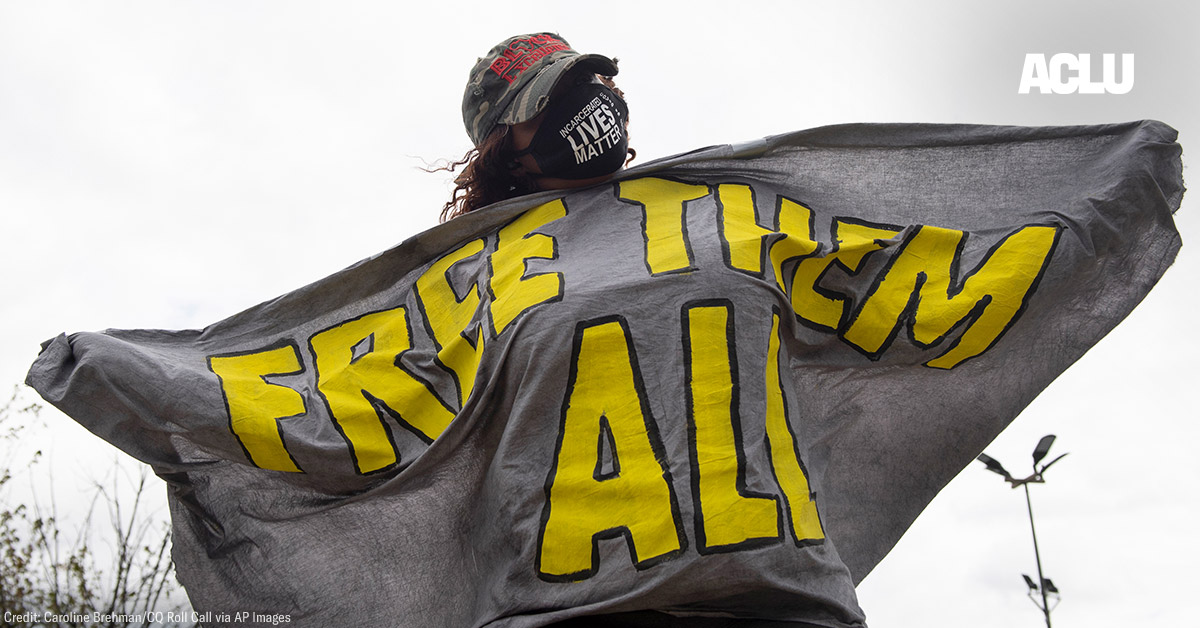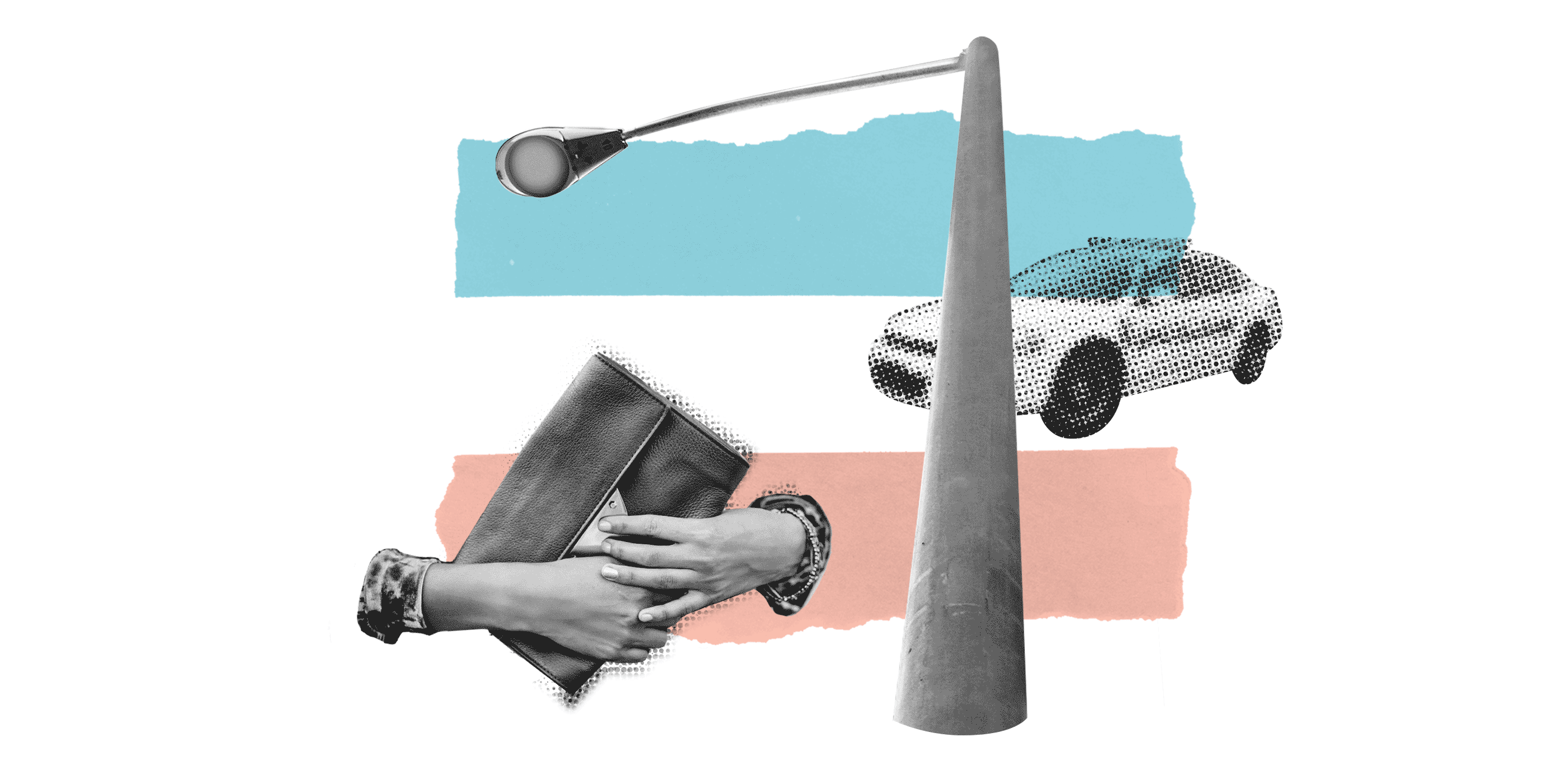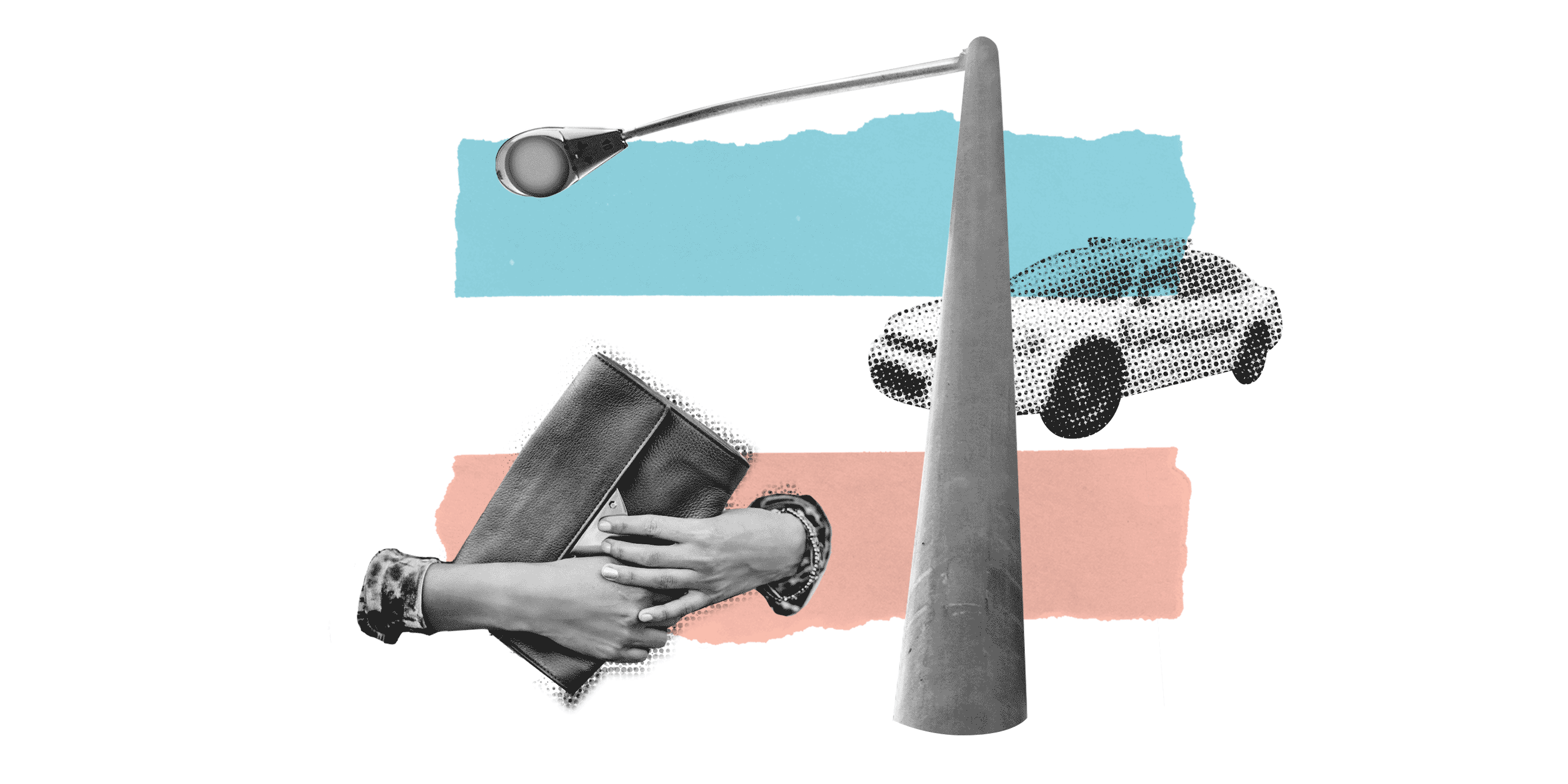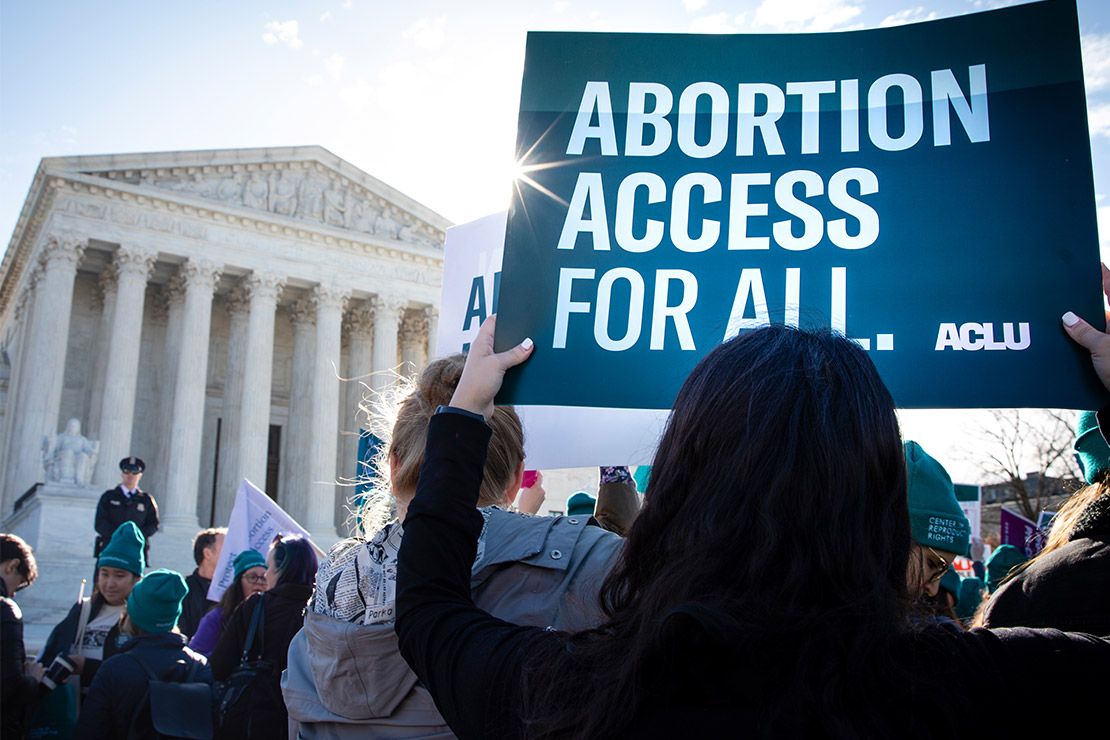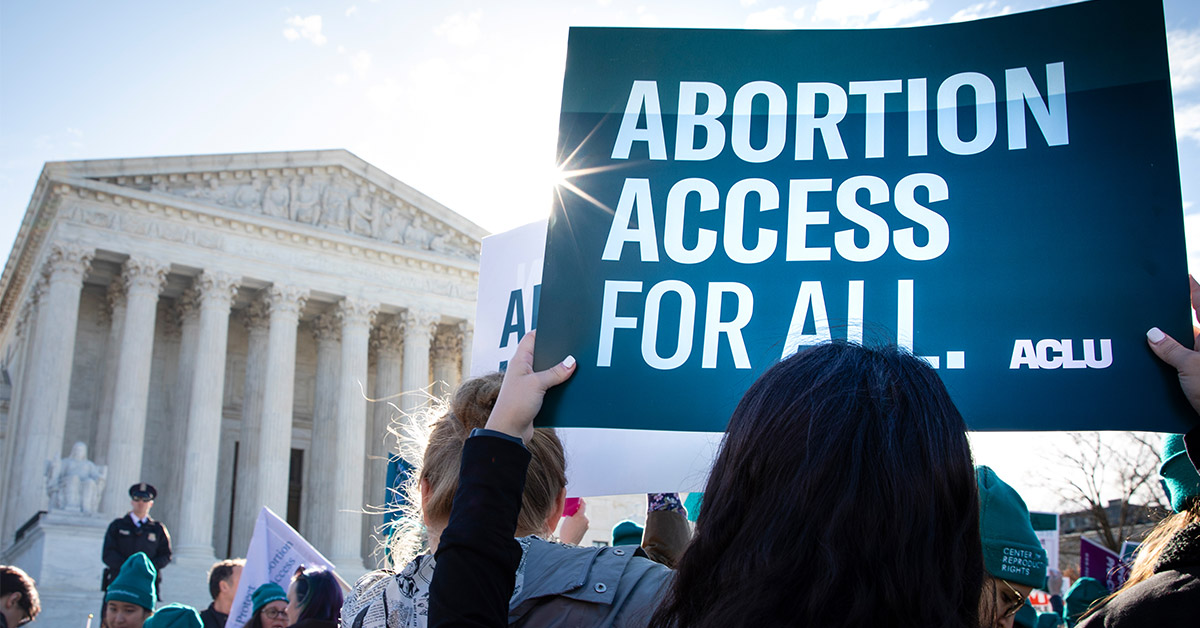By April Rodriguez, ACLU Paralegal
During the COVID-19 pandemic, jails and prisons have become infection hot spots due to notoriously unhygienic conditions and the inability to socially distance. Overcrowded facilities — a symptom of our longstanding national addiction to mass incarceration — are creating an unconstitutional health crisis. Advocates are calling upon judges across the country to release medically vulnerable people from prison and jails. But despite acknowledgment of the urgency from Attorney General William Barr, state officials, and judges, very little has actually been done to release people from prisons in particular.
While advocates have succeeded in securing the release of some people, particularly from jails, many judges have dismissed release as a viable option for people accused or convicted of violent charges. “Many of [the incarcerated people] are violent offenders,” wrote District Judge Robert Dow Jr. in a recent opinion, in a case challenging dangerous conditions in Illinois Department of Corrections’ facilities. “Compelling a process to potentially release thousands of inmates on an expedited basis could pose a serious threat to public safety and welfare … The question is not simply what is best for the inmates — the public has vital interests at stake, too.”
The message behind this and similar rulings is that the rights and safety of incarcerated people are secondary to the public’s comfort and safety during a pandemic, particularly when it comes to incarcerated people accused or convicted of violent charges. Even if the conditions inside prisons and jails indisputably endanger the lives of those incarcerated, these rulings justify their continued incarceration by alleging their release is too dangerous for the community. While concerns for public safety are understandable, in this instance they are unfounded. This is a cowardly and dangerous position, which ultimately puts many more lives at risk.
First, the problems courts are imagining with mass release just don’t exist when you look at the data. The people we’re asking judges to release are either elderly or have serious medical conditions. A subgroup of these people are in for “violent” offenses, which can range from murder to more benign actions like failing a urine test repeatedly. Because these people have been incarcerated for such a long time, much of their sentences have already been served. Further, data shows that most people age out of “violent crime” and older people are least likely to re-offend, making draconian sentences unnecessary and counterproductive, even in non-pandemic times.
For people released pretrial on felony charges, less than two percent are ever re-arrested for a violent felony while awaiting trial. There is simply no statistically significant evidence that the medically vulnerable jail and prison population poses a safety or flight risk. The risk of incarcerated people catching COVID-19 and getting severely ill or dying, on the other hand, is quite high and has been well documented.
Second, it’s crucial to remember that people accused or convicted of violent crimes are just that: people. They have the same inalienable rights that all human beings are entitled to. Advocates should not have to respond with “the risks are not that bad” arguments. The fearmongering and repeated cries for law and order are the same rhetoric that created the mass incarceration crisis in the first place. If we are to truly address it, and prevent senseless, preventable death from this pandemic, we must go beyond advocating for nonviolent, low-level offenders.
Unfortunately, this necessary work is undermined by the fact that many criminal justice reform efforts focus on reducing punishments for low-level crimes, and avoid addressing more serious charges. For example, when picking plaintiffs to represent in a class action, impact litigators — including those at the ACLU — often avoid choosing clients with violent charges or convictions so that conservative judges will be more comfortable granting relief.
When we design our arguments to appeal to the “tough on crime” narrative, we reinforce the idea that people accused or convicted of violent crimes are somehow less deserving of mercy. We risk building reforms around an exclusionary narrative that may hurt the movement in the long run and make it more difficult to go back later and seek justice for those we left behind. Sometimes, an incremental approach is necessary to get judges or the public more comfortable with alternatives to imprisonment. But until we stop relying on caging people as a response to violence, the U.S. will continue to have the highest incarceration rate in the world.
We need to challenge the “law and order” rhetoric that drove mass incarceration in the first place. This starts by unpacking how we define concepts like “danger,” “criminal,” and “violence.” Many studies have shown that Black men receive harsher charges, especially when the victim is white. This means that what society chooses to prosecute as violent is political and heavily influenced by race. Standard definitions of what and who we consider dangerous are not natural or self-evident; they are made.
For medically vulnerable people in jails and prisons, the courts’ concept of danger is irreparably undermining both health and safety by putting them, prison staff, and the general public at risk. That’s why the ACLU is asking the courts to release those most in harms’ way from infection. Judges do not have to overturn someone’s sentence or free them without obligations prior to trial. For people serving sentences, judges can let them continue to serve their time in home confinement or another appropriate setting until the pandemic has passed. For people awaiting trial, judges can order reporting requirements or more restrictive measures like home confinement.
In either case, underlying allegations or offenses should not guide courts’ decisions on how to protect the public. The burden has to be on the government to show with compelling evidence that someone is a credible threat of flight or violence, so much so that this threat outweighs the risk of severe illness or death that comes with continued incarceration.
Fortunately, some courts have bucked the trend and ordered the government to prioritize medically vulnerable people for review for home confinement, including those whose primary or prior offense was classified as violent. But this is not enough. More judges need to reject the unsubstantiated and racially charged cries for harsh punishment. Further, communities must demand that other actors — law enforcement, governors, and prosecutors — expand their vision beyond the “low hanging fruit” of reforms that prioritize the rights of a few, while leaving many others behind. Genuine reform will require us all to rethink how we address serious crimes and question whether incarceration is the best solution, rather than a more holistic economic and political approach.
